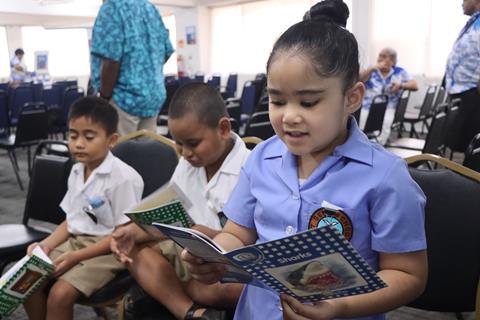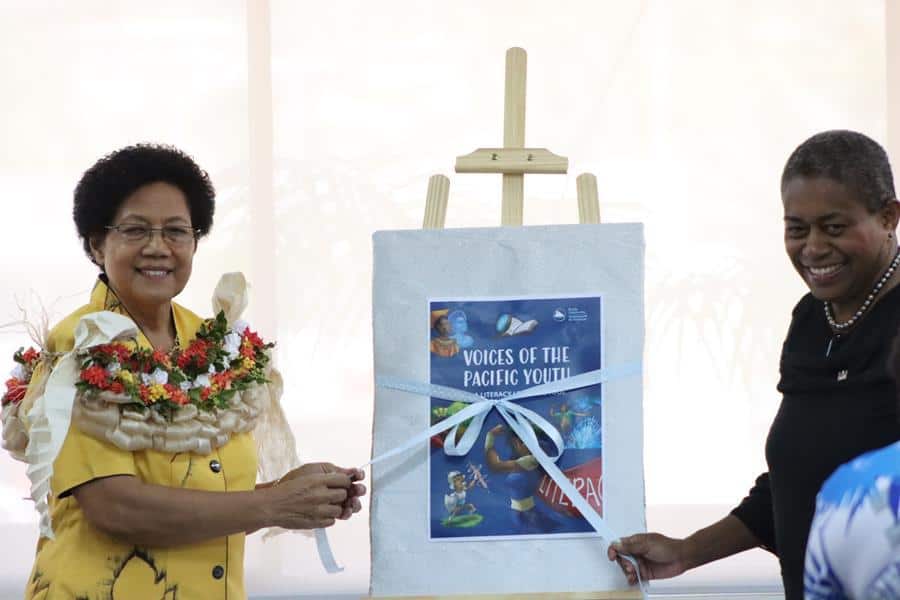Literacy is not just about reading or writing was the message to teachers, students and policy makers marking International Literacy Day in Suva earlier this month.
Former Pacific Community (SPC) Director of Educational Quality and Assessment, Ana Raivoce, stressed the evolving importance of literacy in today’s world while speaking as chief guest at the Suva event. The September 5 event also marked the launch of initiatives aimed at improving literacy across the region.
“Literacy is the skill we build to communicate,” she said. “It goes beyond just letters and numbers; it now includes digital literacy, financial literacy, and job-specific skills.”
She added that those lacking basic literacy skills face significant barriers, especially in the modern economy.
A regional poetry booklet and the Pacific’s own Education Research Bank were launched at the event.
The volume of poetry, titled ‘Voices of the Pacific Youth: A Literacy Learning Tool’, is designed to help teachers enhance literacy through poems written by Pacific authors.
“The environments described in the poems are familiar to our students, making it easier for them to engage with the material,” said Ruci Qele, SPC’s Educational Assessment Specialist.
“Although it was developed based on findings from the Pacific Islands Literacy and Numeracy Assessment (PILNA), which focuses on Year 4 and Year 6 students, the booklet can be used by teachers and even parents to build literacy at any level,” she said.

The booklet includes poems, illustrations, and activities designed to make reading enjoyable and educational.
Dr Michelle Belisle, the current Director of SPC’s Educational Quality and Assessment Programme, echoed the importance of these new resources.
“We’ve been working closely with teachers to improve literacy, and this poetry booklet is just one example of how we are supporting them,” she said.
Belisle also introduced the Pacific Education Research Bank, a digital infrastructure designed to store and share education-related research from across the region.
“The research bank responds to the Pacific’s information management challenges,” she said. “It’s an open-source platform that allows the sharing of knowledge from the Pacific, by the Pacific, and for the Pacific.”
The bank currently houses 25 research papers from eight countries and is expected to grow as more contributions are made.
Raivoce, who has long championed education in the Pacific, used her speech to highlight the importance of multilingualism in improving literacy.
“The Pacific is one of the most linguistically diverse regions in the world,” she said, noting that countries like Papua New Guinea are home to hundreds of languages.
“Multilingualism can enhance literacy, particularly when students learn in their native languages.”
She pointed out that many Pacific schools still teach in English and French, but there are growing efforts to include indigenous languages in the curriculum.
“It’s a positive development,” Raivoce said, “but there is often tension between preserving local languages and ensuring proficiency in international languages, which are seen as key to economic mobility.”
Raivoce shared an example from Vanuatu, where bilingual education programs have led to improved literacy outcomes.
“When children start their education in a language they speak at home, they are more likely to understand the fundamentals of reading and writing,” she said.
